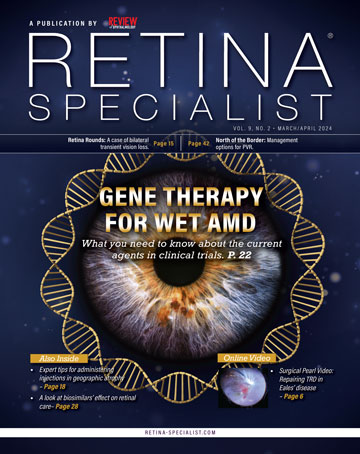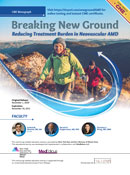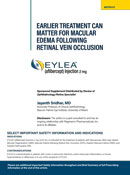 |
|
Richard Gale, MBCHB, PhD: No evidence treatment helps AMD patients' mental health. |
An urgent need exists to raise awareness among retina specialists about the mental health crisis among patients with age-related macular degeneration.
Richard Gale, MBChB, PhD, a professor at Hull York Medical School in the United Kingdom, delivered that message to attendees at EURETINA 2023 in Amsterdam in October.1 He noted that high rates of depression and anxiety exist among AMD patients and their caregivers, but practitioners aren’t attuned to it.
“I’m sorry to say, I think we still have our head in the sand,” Dr. Gale said in presenting results from a literature review his group published earlier this year that evaluated the well-being of patients with neovascular age-related macular degeneration and their caregivers.2 The review included 63 studies that met inclusion criteria, but only 15 evaluated quality of life (QoL) before and after patients had anti-VEGF treatments, he said.
Based on his research, Dr. Gale estimated rates of anxiety and depression in patients with neovascular AMD at 15 and 8 percent in the European Union, 26 and 18 percent in the United States, and 17 and 12 percent in the United Kingdom.
No evidence treatment helps
He noted that different tools were used to measure anxiety and depression across the various studies. Eight studies used the National Eye Institute Visual Function Questionnaire 25 subscales.
“Again, there is no clear evidence that treatment [of nAMD] actually improves anxiety or depression,” he said. “This is quite shocking: 60 percent of individuals were anxious about the assessment more so than the 20 percent who were anxious about the injections themselves.”
His research found that more than 80 percent of patients getting
anti-VEGF treatments for nAMD have five or more medical comorbidities.
Caregivers also stressed
Dr. Gale also evaluated caregiver burden, but noted that a lack of longitudinal data made that difficult. Nonetheless, he gleaned these findings from the published research:
- Cultural norms probably influence caregiver burden.
- 47 percent of caregivers are a child or grandchild, 23 percent are partners.
- 60 percent of caregivers attended all appointments.
- 30 percent of patients attended appointments alone.
- 30 percent of caregivers said the frequency of visits was inconvenient and that it contributed to nonadherence.
To further illustrate his point, Dr. Gale drilled down into results from the nAMD Barometer survey, which were presented at a separate EURETINA 2023 presentation.3
“Half of patients reported that the frequency of treatment was just too much,” Dr. Gale said. “Half were concerned about being a burden to family and friends. A third were fearful of treatments. Also financial issues and comorbidities were strains, which we need to be aware of, and actually our patients were asking us proactively to discuss this in clinic.”
In an interview, Dr. Gale says the nAMD Barometer studies “are very powerful.”
Call for consensus statement
Dr. Gale also called for a consensus statement to address mental health issues surrounding nAMD.
“Actually we don’t measure patient care-reported outcomes consistently in the real world,” Dr. Gale said at EURETINA.
His findings raised a number of questions about how retina specialists approach mental health issues among their patients.
“Maintenance of quality of life appears to be a realistic goal,” Dr. Gale said. “Can we actually aim for improvement to QoL with other interventions? And anxiety and depression are not improved by treatment. How do we identify and manage this better?”
A key step might be getting one’s head out of the sand.
Dr. Gale disclosed relationships with AbbVie, Apellis Pharmaceuticals, Alimera Sciences, Amgen, Bayer, Biogen, Novartis, Notal Vision, Roche and Heidelberg Engineering.
REFERENCES
1. Gale RP. Patient mental health and caregiver burden in AMD. Paper presented at EURETINA 2023; Amsterdam; October 8, 2023.
2. Gale RP, Finger RP, Eldem B, et al. The management of neovascular age-related macular degeneration: A systematic literature review of patient-reported outcomes, patient mental health and caregiver burden. Acta Ophthalmologica. 2023;1:e26-e42.
3. Loewenstein A. A global survey of patients, providers, and clinic staff from 24 countries reveals barriers to optimal care delivery for nAMD due to constraints and gaps in clinic capacity. Paper presented at EURETINA 2023; Amsterdam; October 5, 2023.
Prestigious Lasker-DeBakey award for three OCT inventors
The three developers of optical coherence tomography—James G. Fujimoto, PhD, and Eric A. Swanson, MS, of the Massachusetts Institute of Technology, and David Huang, MD, PhD, of Oregon Health and Science University in Portland—received the 2023 Lasker-DeBakey Clinical Medical Research Award.
Established in 1945 by biomedical pioneers Mary and Albert Lasker, the Lasker Awards are regarded as America’s preeminent biomedical research prize. The awards carry an honorarium of $250,000 for each category. Ninety-five Lasker award winners have received the Nobel Prize.
A 2018 study, which Mr. Swanson and Dr. Huang co-authored, reported OCT had saved Medicare and patients with age-related macular degeneration $11.2 billion by enabling personalized anti-VEGF treatments.1
The Lasker Foundation estimates more than 30 million OCT procedures are done annually worldwide.
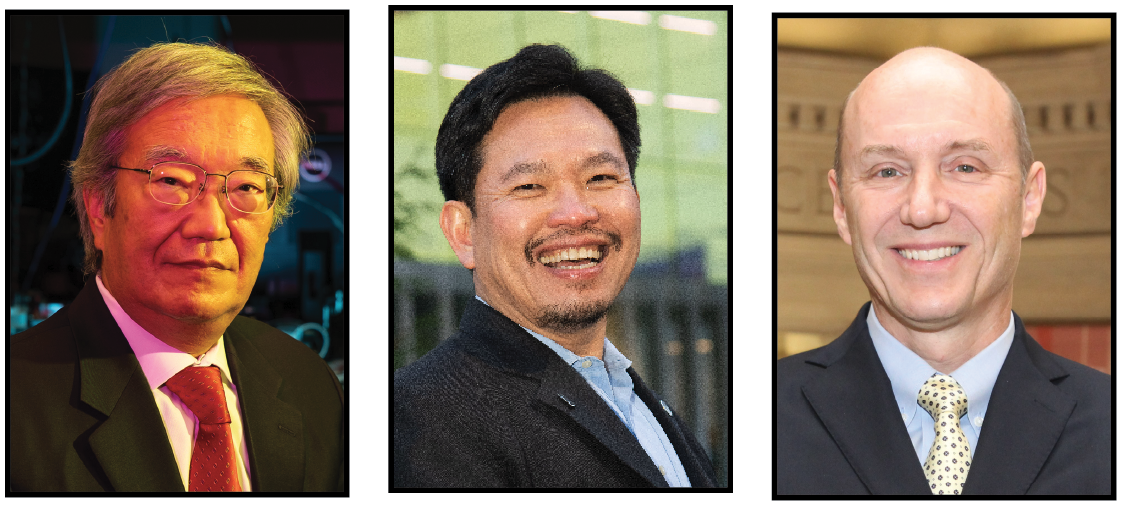 |
|
Lasker-DeBakey Clinical Medical Research Award winners (left to right) James G. Fujimoto, PhD, David Huang, MD, PhD, and Eric A. Swanson, MS. |
REFERENCES
1. Rosenfeld PJ, Windsor MA, Feuer WJ, Sun SJJ, Frick KD, Swanson EA, Huang D. Estimating Medicare and patient savings from the use of bevacizumab for the treatment of exudative age-related macular degeneration. Am J Ophthalmol. 2018;191:135-139.
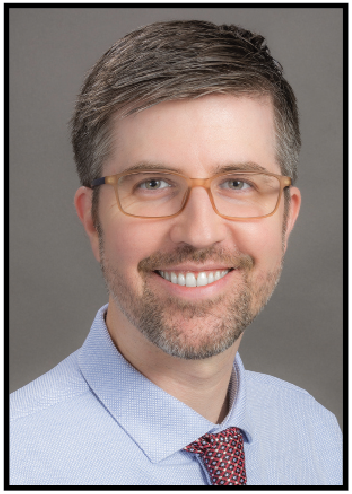 |
U Wash prof joins Retina Specialist editorial board
Retina Specialist magazine has expanded its editorial board with the addition of Christopher Fortenbach, MD, PhD, as editor of the “Retina Rounds” column. Dr. Fortenbach, an assistant professor of ophthalmology at the University of Washington, Seattle, takes over for U Wash colleague Lisa Olmos de Koo, MD, MBA, an associate professor and director of the retina fellowship program, who had overseen the column since Retina Specialist launched in March 2015.
In Brief The U.S. Food and Drug Administration has approved the bispecific vascular endothelial growth factor antibody Vabysmo (faricimab, Genentech/Roche) for treatment of macular edema secondary to retinal vein occlusion. It’s the third indication for which the FDA has approved Vabysmo, in addition to neovascular age-related macular degeneration and diabetic macular edema. The FDA has bestowed interchangeability status upon the ranibizumab biosimilar Byooviz (Samsung Bioepsis) for treatment of nAMD, RVO and myopic choroidal neovascularization, putting it on par with Cimerli (Coherus Biosciences). Interchangeability allows pharmacists to substitute the biosimilar for the reference drug without further approval from the prescribing physician. With the influx of new anti-VEGF agents in the past two years, approximately one-fifth of patients with DME have switched therapies, healthcare data analytics firm Spherix Global Insights reports. The findings are from a survey of 128 U.S. ophthalmologists. RS |
